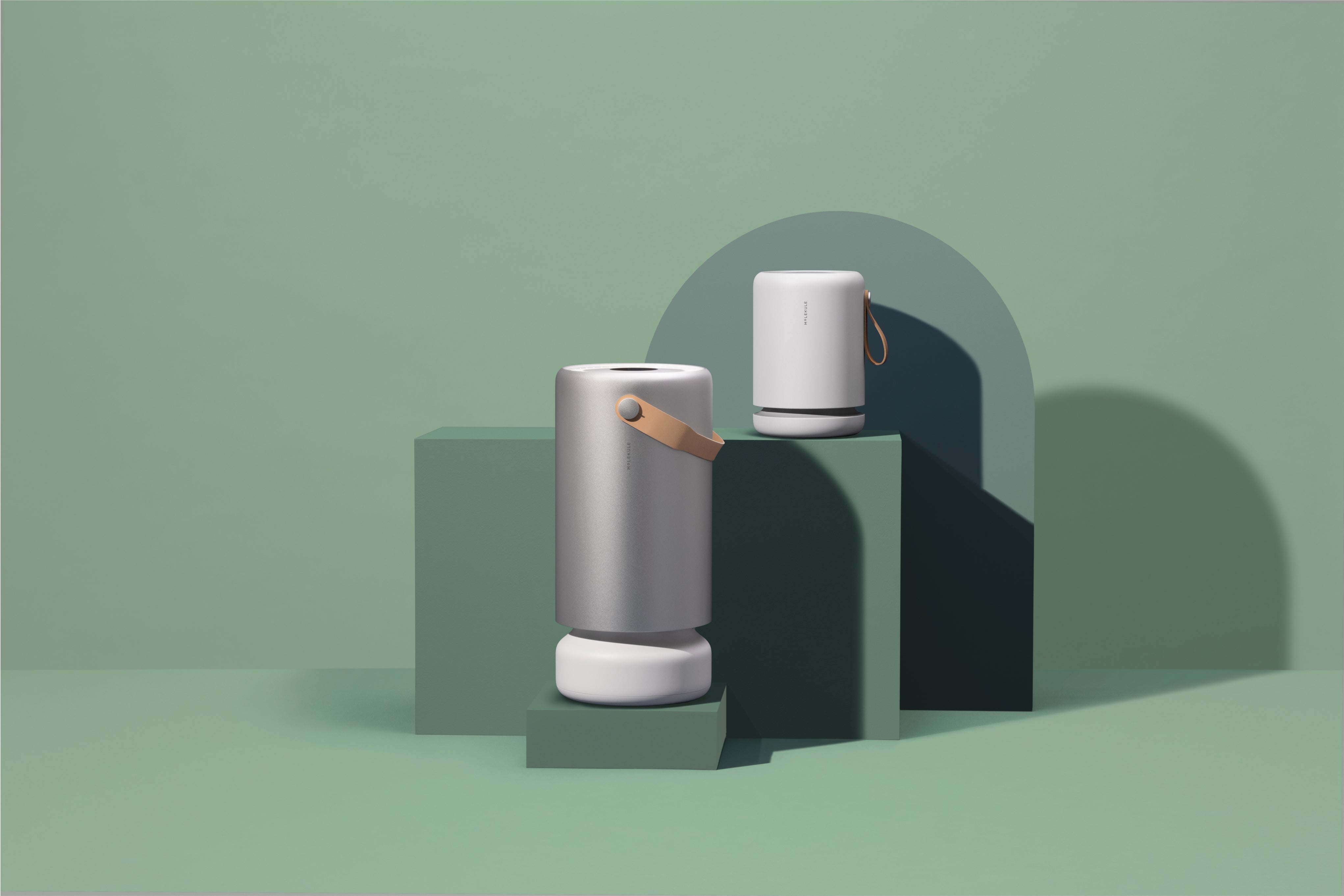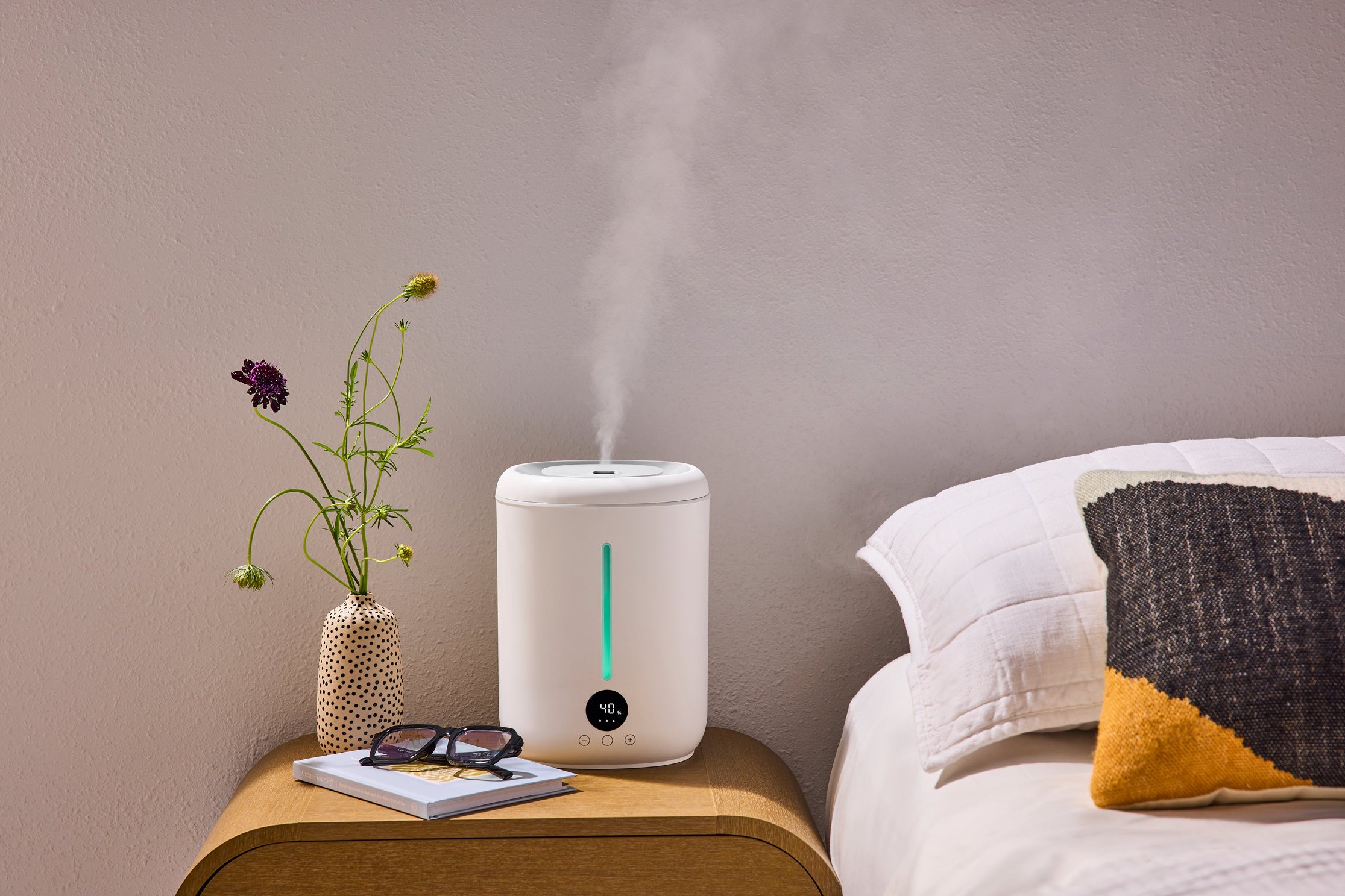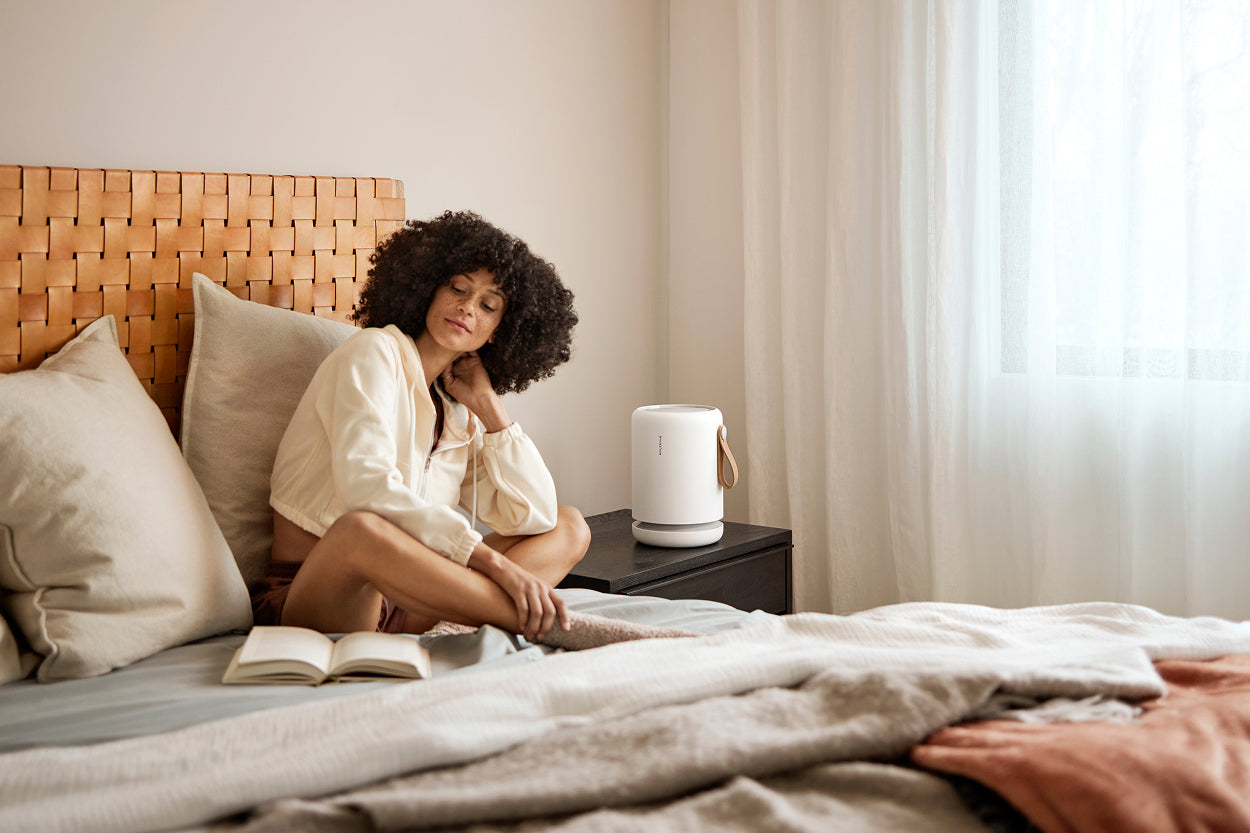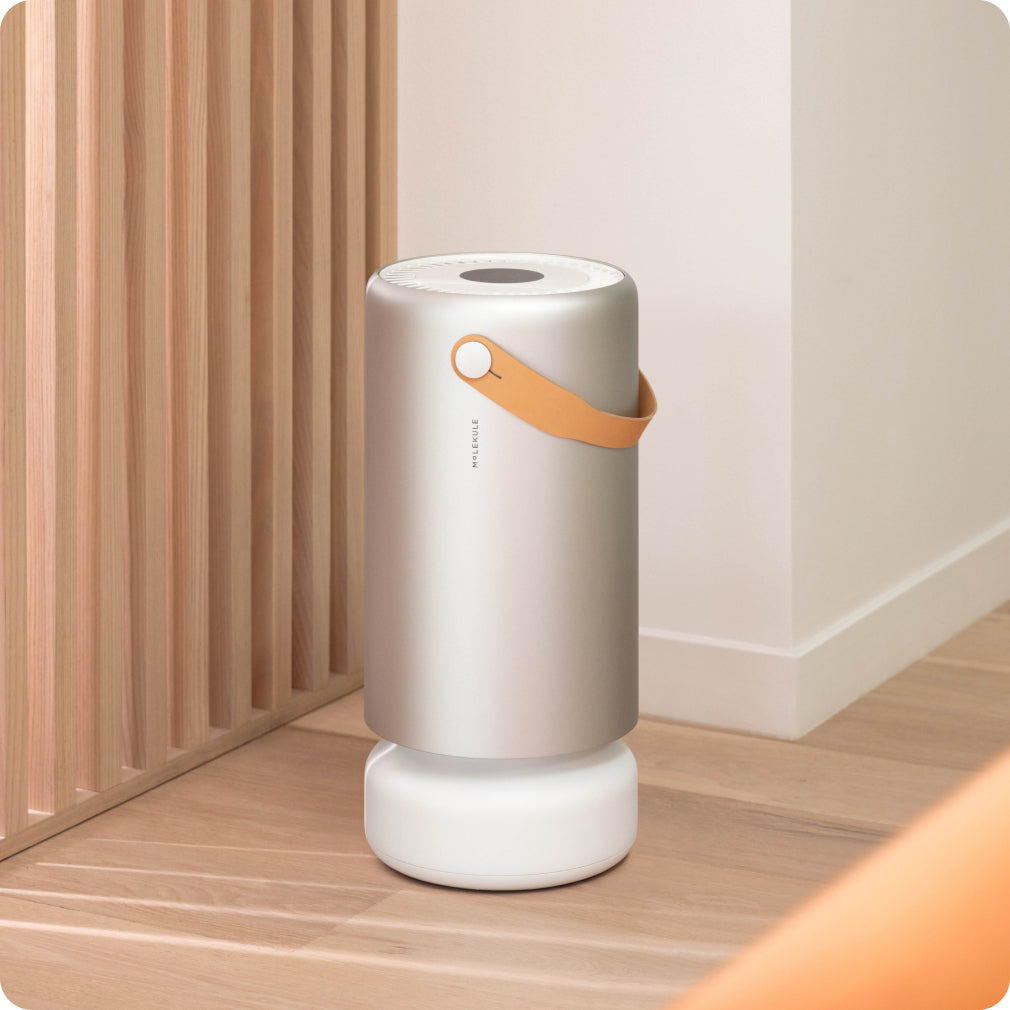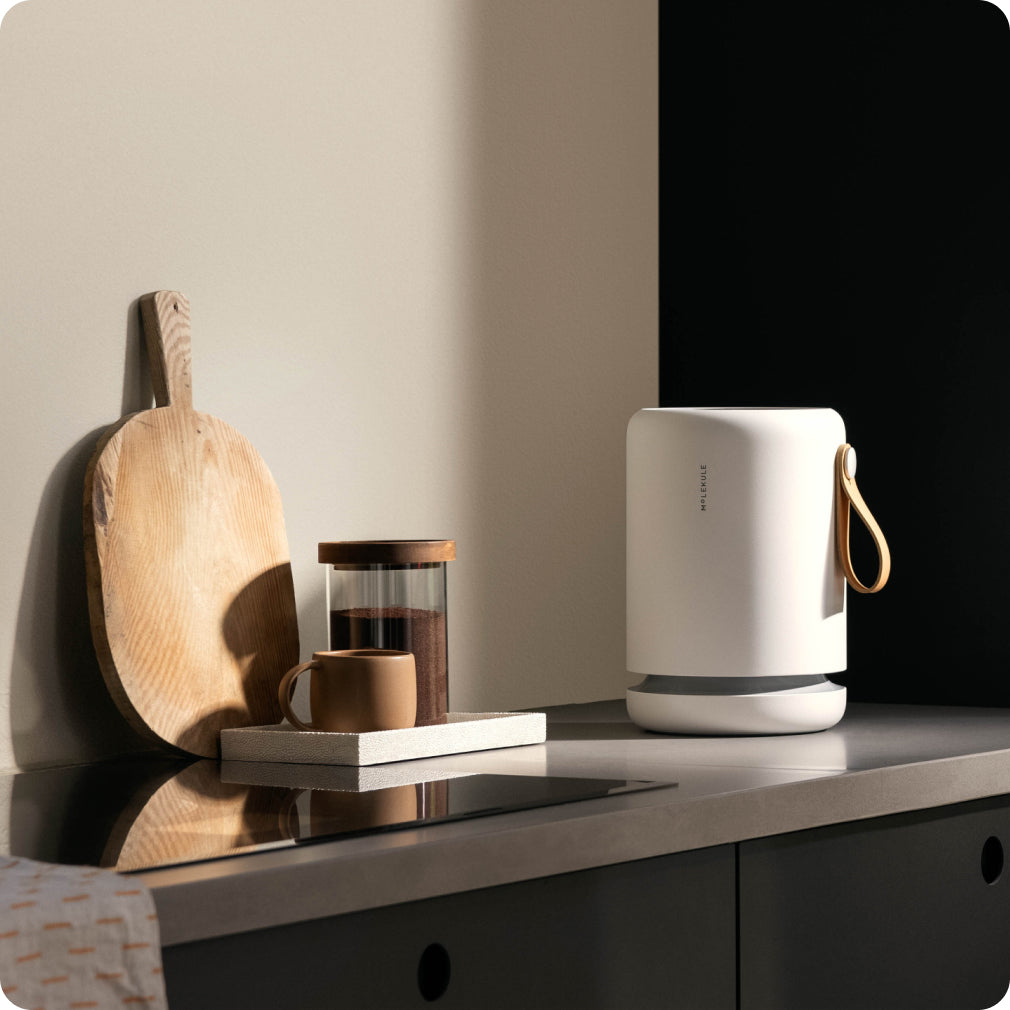Aside from the respiratory, cardiovascular, and mental health benefits of clean air, living and breathing in a clean air environment has numerous benefits for the largest human organ—your skin. And while June is officially UV Awareness Month, we’re taking the opportunity to, ahem, shine some light on the relationship between air pollution and skin damage.
How Air Pollution Affects Your Skin
As we walk to our cars, make our way down busy sidewalks, or ramble through city parks, invisible pollutants are waging war on our skin. Skin is our first line of defense, but over time it takes a beating. There are two types of aging processes. The first is intrinsic skin aging which describes the natural process of aging; everyone develops wrinkles and skin spots as they age. The second, called extrinsic aging, describes the process of environmental factors that contribute to premature aging, and includes UV light, air pollution, stress, nutrition, and more.

In terms of air pollution as an extrinsic factor, PM2.5 is the greatest threat, although ozone and VOCs also contribute to the premature aging of our skin. These are microscopic particles small enough to penetrate the skin and cause inflammation. Small particulate matter is typically composed of dust, but dust can act as a vehicle for other chemicals to hitch a ride into our bodies. For instance, heavy metals like lead and mercury can attach themselves to these airborne taxis where they wreak havoc through a process known as oxidative stress.
Oxidative Stress and Its Impact on Aging
Oxidative stress is a process where naturally-occurring free radicals create an imbalance in our bodies, leading to the depletion of our skin’s natural elasticity, among other negative effects. When skin loses elasticity, wrinkles form. That’s why the areas of our body that expand and contract the most—the corners of our eyes and mouth, our hands and feet, our forehead, etc.—are the first to show wrinkles. The elasticity of those areas breaks down naturally, but can be accelerated by exposure to air pollution.
Free radicals are always present in our bodies, created as a natural byproduct when we convert food into energy; they even help our immune system. But when we’re exposed to too much air pollution, for example, an imbalance occurs and free radicals begin to attack cells that we need. Antioxidants help keep the necessary balance we need to stay healthy. Eating foods rich in antioxidants is one way to decrease free radicals and reduce oxidative stress. Fruits, vegetables, legumes, salmon, and eggs are great sources of antioxidants. The other way to reduce free radicals is to limit your exposure.
How to Limit Your Exposure to Free Radicals
By taking active efforts to protect yourself from free radicals, you limit your exposure in the first place, making it easier for the antioxidants in your body to do their job and maintain proper levels of free radicals. Here are some ways you can limit your exposure to free radicals:
- Monitor weather reports—Local news and most weather sites report daily AQI (Air Quality Index), ranging from Good to Hazardous. On days when AQI reaches unhealthy levels, consider avoiding going outside. If you must, wear long sleeves, a hat, even a mask.
- Wear sunscreen—Mineral-based sunscreens that contain zinc oxide can block UV radiation from damaging your skin and create a physical barrier to protect your skin from particulate matter (PM2.5).
- Moisturize your skin—Different types of moisturizers help maintain skin elasticity and can slow the natural aging process.
The Role of Air Purification on Skin Health
Clean air is skincare. And while we can’t take active efforts to purify outdoor air, we can make the air in our homes cleaner and healthier for our skin. Molekule’s air purification technology is designed to capture, destroy, and purify your air from harmful particulate matter and VOCs that can cause skin damage even when you’re inside. Through a patented, proprietary process called PECO (Photoelectrochemical Oxidation), the same types of free radicals found in our body are used in our filters to break down harmful organic molecules into their components, rendering them harmless.
All Molekule air purifiers are equipped with advanced sensors that track pollutant levels. By leveraging Auto Protect mode, your air purifiers will automatically adjust fan speeds to bring pollutant levels down. This is a super convenient “set it and forget it” strategy to maintain clean air in your home, because even with windows and doors closed, air pollution from outside can make its way indoors where it can build and become up to 5x more concentrated than outside.
